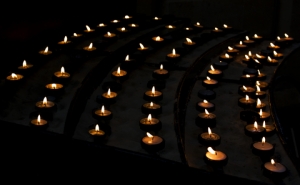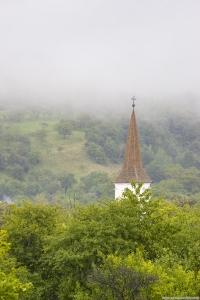SCIENCE AS A SPIRITUAL PRACTICE
 It is human to crave certainty. Especially as people find themselves feeling less and less safe in a world where senseless violence occurs randomly, indiscriminately. People seek out messages that promise salvation, that give unwavering answers to their ultimate questions of the whys and hows and meanings of life. With underlying fear serving as a primary motivator, it is any wonder that many major faiths perceive any conflicting idea as a threat to their “proclaimed truth” that must be squelched?
It is human to crave certainty. Especially as people find themselves feeling less and less safe in a world where senseless violence occurs randomly, indiscriminately. People seek out messages that promise salvation, that give unwavering answers to their ultimate questions of the whys and hows and meanings of life. With underlying fear serving as a primary motivator, it is any wonder that many major faiths perceive any conflicting idea as a threat to their “proclaimed truth” that must be squelched?
And yet the world is an uncertain place. Immature religion makes specific promises to those who follow blindly and there are many takers. But a faith that believes that our current knowledge is not complete, but is continually being revealed, takes the greatest leap and reaps the greatest reward. It is Religion that knows that Science is not at odds with its practice. Instead of a penchant for polarizing, splitting our thoughts into atoms of absolute truth or fervent absolutism, we can know that we all hold only partial truth and we all but “see in a mirror darkly”. Instead of a world view that smacks of self-righteousness, forming our views of what is right and what is wrong on either the most rigid religious beliefs or the latest scientific discovery, we can find God in science and science in God.
 Among the many discoveries made by the Hubble telescope in the last decade is that there is considerably “more” to the universe than scientists had previously believed. I mean a lot more. It is expanding. And this expansion is happening at increasingly faster rates as time passes. Twenty years ago, scientists posited that there were two galaxies for everyone alive. Now, that figure is closer to nine galaxies for each of us or about eighty billion galaxies total. Each of these galaxies harbors at least one hundred billion suns. In our galaxy, the Milky way, there are four hundred billion suns-give or take 50 percent-or sixty-nine suns- for each person alive.
Among the many discoveries made by the Hubble telescope in the last decade is that there is considerably “more” to the universe than scientists had previously believed. I mean a lot more. It is expanding. And this expansion is happening at increasingly faster rates as time passes. Twenty years ago, scientists posited that there were two galaxies for everyone alive. Now, that figure is closer to nine galaxies for each of us or about eighty billion galaxies total. Each of these galaxies harbors at least one hundred billion suns. In our galaxy, the Milky way, there are four hundred billion suns-give or take 50 percent-or sixty-nine suns- for each person alive.
One more mind bender: according to the Hubble European Space Agency, cosmologists estimate that what we can “see” in our universe accounts for only about 15 to 20 percent of the “matter” that is actually out there.
These astronomical statistics affirm a spiritual sense of awe in the vastness and mystery in which we live, direct my daily personal concerns with a backdrop of perspective, and strengthens my firm belief in the perpetual power of creativity from the single cell organism to the complexity of several billion galaxies.
I don’t know about creating the universe in 6 days and resting on the 7th, literally speaking. I do know that it has provided structure for thousands of years to millions of Jews and Christians, satisfying the human need to know how we began and ingeniously giving a rhythm to life. When Darwin shook up this notion of our origins, what remained was still the hand of order and amazing adaption.
I have a dear friend who believes that the scientists today are the true theologians. That those devoting their lives to finding out when life as we know it exactly began, that singular occurrence, and how it happened, they are trying to solve the mystery of why we are here, how we came to be here. How come something, rather than nothing?
This is no dichotomy of science and religion, but a thinking, open-hearted spirituality. Both are true. “Science is not only compatible with spirituality; it is a profound source of spirituality. When we recognize our place in an immensity of light‐years and in the passage of ages, when we grasp the intricacy, beauty, and subtlety of life, then that soaring feeling, that sense of elation and humility combined, is surely spiritual. So are our emotions in the presence of great art or music or literature, or acts of exemplary selfless courage such as those of Mohandas Gandhi or Martin Luther King, Jr. The notion that science and spirituality are somehow mutually exclusive does a disservice to both.”― Carl Sagan, The Demon-Haunted World: Science as a Candle in the Dark







